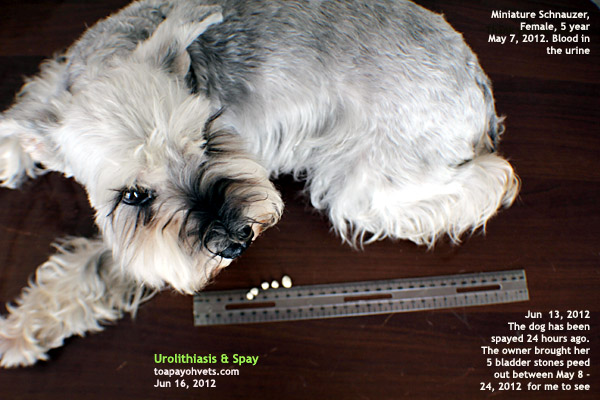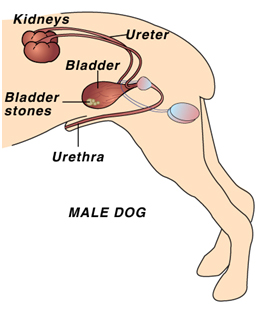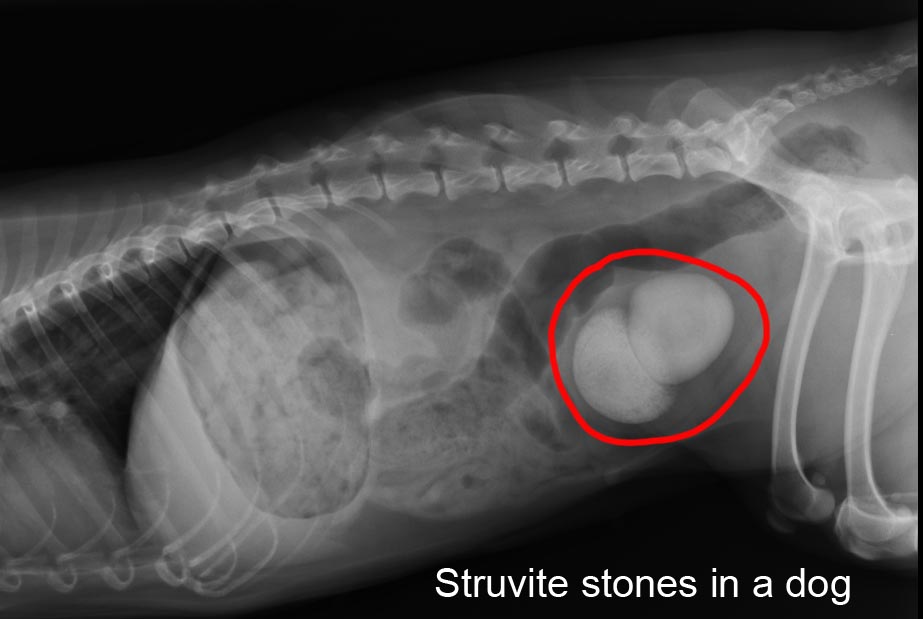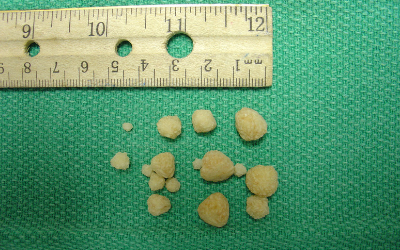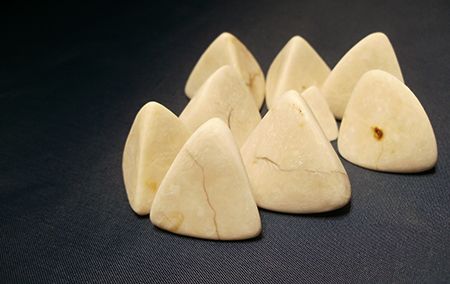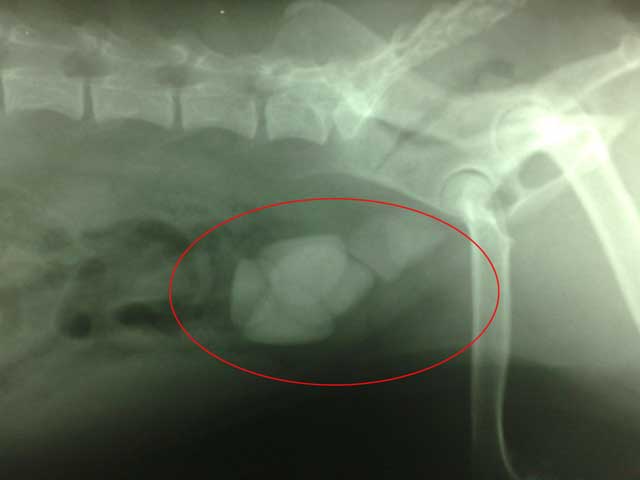Cystine uroliths also referred to as calculi are stones within the urinary tract composed of the amino acid cystine a breakdown product of proteins.
Cystine bladder stones in dogs.
Most bladder stones in dogs are made from struvite calcium oxalate urate or cystine crystals.
In many cases the specific type of crystal involved can be seen in a sample of urine viewed under the microscope.
While bladder stones in general are somewhat common in dogs cystine bladder stones are rare.
A somewhat rare form of urolith in the dog is composed of cystine crystals.
Bladder stones uroliths or cystic calculi are rock like formations of minerals that form in the urinary bladder and are more common than kidney stones in dogs.
Dogs are more susceptible to bladder stones than kidney stones and in rare occurrences can develop bladder stones that are made up of cystine stones.
If struvite is the diagnosis a veterinarian will treat the underlying cause.
Urinary tract kidney stones called urolithiasis in veterinary terms are stones made up of minerals which usually form in the kidneys and develop in the bladder.
These stones can also be found in the kidneys and in the tubes connecting the kidneys to the animal s bladder ureters.
Your veterinarian may be able to palpate the stones or may need to perform imaging studies such as a bladder ultrasound or a contrast radiographic study.
Urolithiasis affects both dogs and cats and are primarily found in adult animals.
